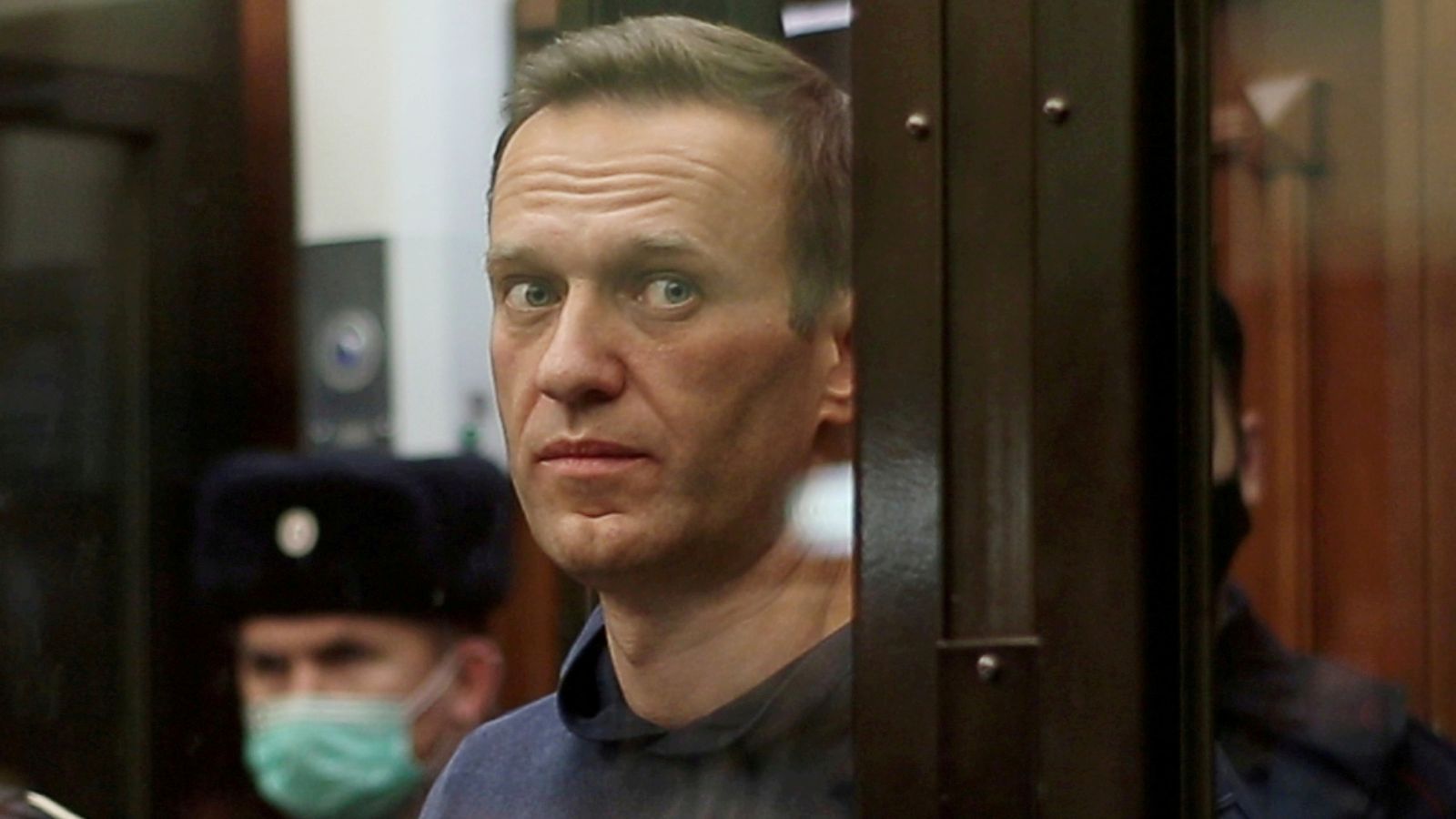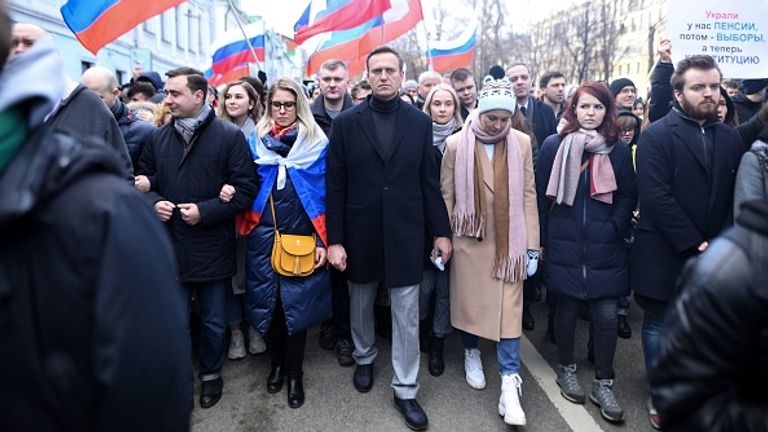There are growing concerns about the health of jailed Kremlin critic Alexei Navalny.
The 44-year-old’s lawyers were finally allowed to visit him in prison on Thursday and one of them said afterwards that Mr Navalny has been unwell for four weeks and pleas for the correct medication have been ignored by prison authorities.
Olga Mikhailova told Dozhd TV that Mr Navalny has had an MRI scan but has not been told the result, adding: “His state of health, of course, in my opinion, is extremely unfavourable, since he is experiencing severe pains in his back, in his right leg.
“His shin is taken away from him, the leg is incapacitated, that is, one leg practically does not work, that is, he can neither sit on it, nothing. The right leg is in a terrible state in fact.”
In a statement released by his lawyers, Mr Navalny said his requests to see a civilian doctor had been refused and that he is deprived of sleep by prison guards, something he described as torture.
He is woken every hour during the night because authorities classify him as a flight risk.
Mr Navalny’s wife Yulia wrote on social media: “Everyone who knows Alexei knows that he will not complain until the very end. He will endure, try to cope himself and joke.
“Alexei forbade us to talk about it so that it doesn’t look like he is complaining.”
She said she had asked a doctor to write down some exercises her husband could use to relieve his pain but prison authorities had not allowed these to be passed to him.
“Putin has already told the whole country that he reads my appeals to him,” she said. “So I demand the immediate release of my husband, Alexei Navalny, whom he unlawfully pushed into prison.
“He pushed him in because he is afraid of political competition and wants to sit on the throne for the rest of his life.
“What is happening now is personal revenge and reprisal against a person, which is taking place before our eyes. This should stop immediately.”
The Federal Penitentiary Service (FSIN) said on Thursday that Mr Navalny’s health “is deemed stable and satisfactory, according to the results of the examination”.
Mr Navalny’s Anti-Corruption Foundation responded to this on Twitter, saying: “Now we are really worried – even the Federal Penitentiary Service can’t call Navalny’s condition ‘good’.”
The dissident’s lawyers had struggled for days to visit him, being blocked by prison authorities each time.
Earlier this week a protest was announced that will call for his release and organisers hope it will be one of the biggest anti-Kremlin demonstrations Russia has seen.
Internationally, the foreign ministers of Lithuania, Latvia and Estonia wrote on Twitter that the reports about Mr Navalny’s health were “disturbing”, adding: “Access to healthcare is a basic right even of political prisoners.
“We call on the international community and (European Union leaders) to speak up too.”
The Kremlin said it was not following developments and that the matter was one for prison authorities.
Mr Navalny is probably the most outspoken critic of Russian President Vladimir Putin.
He was arrested in January as he returned to Russia from Germany, where he spent five months recovering from what doctors said was a nerve agent poisoning.
Last month he was jailed for two-and-a-half years for violating the terms of his probation while in Germany but he said the charges were politically-motivated.
The previous sentence comes from a 2014 embezzlement conviction that Mr Navalny has said is fabricated, and which the European Court of Human Rights has described as unlawful.
Earlier in March, Mr Navalny posted a note on social media saying he had arrived at a prison colony in Pokrov, in the Vladimir region, about 53 miles east of Moscow, which he described as “a real concentration camp”.
A number of countries, including the UK, have called for his release but the Russian government has dismissed this as interference in its internal affairs.




